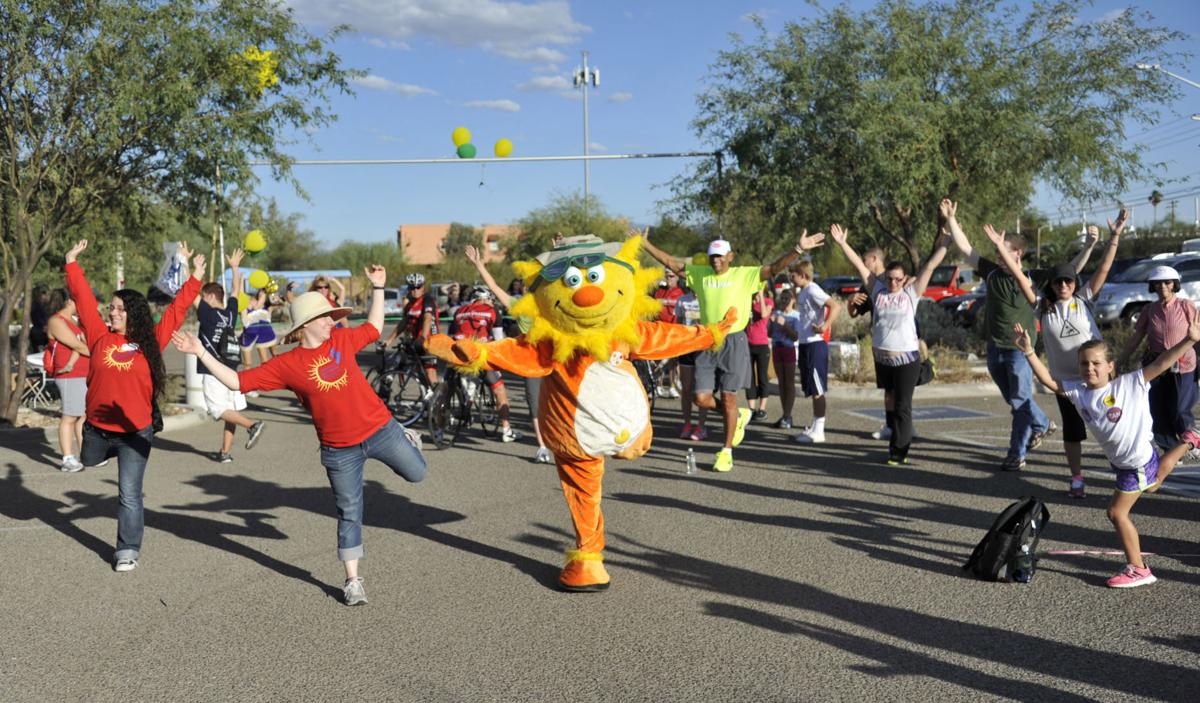Autumn in Tucson means more opportunities for outdoor activities. And whether you prefer walking, hiking, running or biking, you can find a fundraiser to fill the bill for physical fitness and philanthropy.
As you increase your time outside, volunteers with the upcoming Melanoma Walk encourage you to remember your SPF — sun protection factor.
“Skin cancer is one of those cancers that we understand the cause for a great majority of cases and that cause is too much ultraviolet radiation exposure or too much sun,” said Denise Spartonos, community outreach coordinator for the University of Arizona Skin Cancer Institute.
“We know that by getting the word out and raising awareness and educating people about following sun-safety practices, we can prevent a lot of future cases down the road, and the Melanoma Walk is a perfect opportunity for that.”
Skin cancer becomes a reality for about one in five Americans during their lifetimes. According to the Centers for Disease Control and Prevention it is the most common form of cancer, with estimates of more than 3.5 million cases diagnosed annually.
Incidence in Arizona is particularly high, with the American Cancer Society estimating that more than 1,400 new cases of melanoma will be diagnosed annually and about 171 Arizonans die of melanoma each year.
To combat skin cancers through prevention and early detection, Spartonos said that the Skin Cancer Institute promotes a simple acronym: ACE.
• “A” stands for “Avoid” the sun’s UV rays;
• “C” represents “Cover Up,” preferably with long sleeves and pants, hats, sunglasses that sunblock with an SPF of 30 or higher; and
• “E” is for “Examine Your Skin” monthly for changing bumps, moles or spots and get an annual skin check.
The message is relevant to people of every age, much like the family-friendly walk, according to Jackie Gomez.
A former employee of the Skin Care Institute, she volunteers every year with her daughter, Chantel Leon, 18. Leon has helped with tasks ranging from handing out water and assisting with registration to donning the costume of “Ray,” the Skin Cancer Institute mascot.
Gomez said the walk is a family affair that involves “survivors and thrivers” and their families as well as volunteers and their families along with health-care providers and businesses.
“It is important everyone becomes aware of melanoma, especially in Arizona, and this event gives the opportunity for people to have free skin caner screenings and provides lots of information about prevention,” said Gomez.
The free skin cancer screenings at the walk have been well-received by the community, according to Spartonos.
Each full-body exam is performed by a skin cancer specialist from the community; providers expect to perform about 75 screenings and you need not participate in the walk to be screened. Spartonos emphasized that the screenings don’t provide definitive diagnoses on-site.
“Diagnosis can only be made through a biopsy and this is just a screening, but when you leave you will know if you have an ‘all clear’ or if you have a suspicious lesion that needs follow-up. The good news is that when it is caught early enough, it is very treatable for the most part,” Spartonos said.
Volunteer Nancy O’Connor, a retired radiation oncology nurse, said the screenings and the walk are important opportunities for prevention outreach.
“We have come so far in treatment of this disease, plus we know so much more today. What we know today is that nobody should be laying out in the sun or under tanning beds and that sunscreen is enormously important,” she said.
Additionally, O’Connor said prevention is important across the board for every race and skin type.





